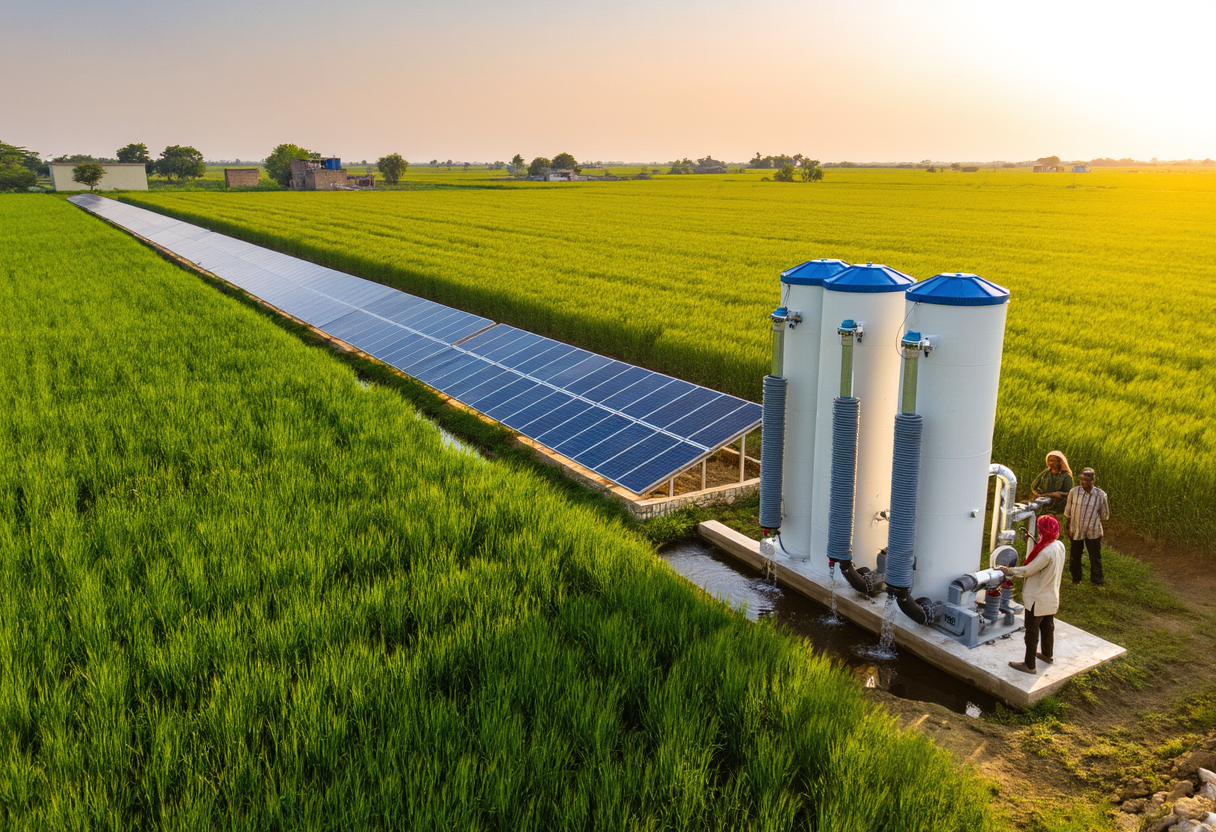Revolutionizing Water Management: The Impact of Solar-Powered Water Pumps
Solar-powered water pumps are dramatically changing the landscape of water management, offering a sustainable and efficient alternative for agriculture. With their reliance on renewable energy, these pumps reduce energy costs and ensure reliability in water supply. This article examines their impact on agriculture and water conservation efforts around the world, offering insights into how solar-powered water pumps are driving innovation and resilience in farming practices, ultimately fostering sustainable development in water-scarce regions.
Changing the Paradigm of Water Management
Water management is a critical issue faced by agriculturalists globally, and solar-powered water pumps represent a revolutionary shift in how this resource is managed. By tapping into renewable solar energy, these pumps provide farmers with a reliable and sustainable source of irrigation. As climate change exacerbates water scarcity issues, the importance of efficient irrigation solutions becomes paramount. Utilizing solar-powered water pumps allows for greater control over water resources, enabling farmers to optimize their irrigation strategies effectively. This innovation not only ensures that crops receive sufficient water but also supports conservation efforts by preventing overuse of water resources.
Economic Implications of Solar Power in Agriculture
The economic implications of adopting solar-powered water pumps are profound. Farmers who switch to solar technology can significantly reduce their energy expenditures, facilitating cost-effective farming operations. This newfound profitability is particularly crucial in developing regions where access to advanced technology and infrastructure may be limited. Instead of diverting funds toward fuel and maintenance of diesel pumps, farmers can reinvest in their operations, adopting better farming practices or expanding production. Furthermore, as solar technology becomes increasingly affordable, more farmers can benefit from these systems, thus contributing to local economies and promoting agricultural growth.
Environmental Benefits of Solar-Powered Water Pumps
The environmental advantages of solar-powered water pumps are layered and impactful. By relying on solar energy, these systems utilize a clean energy source that significantly reduces greenhouse gas emissions compared to traditional fossil fuel-powered pumps. Additionally, solar-powered water pumps enhance water conservation efforts, allowing farmers to manage their water use more effectively. Sustaining healthy ecosystems while increasing agricultural productivity is a delicate balance, and solar technologies help achieve this equilibrium. As awareness and adoption grow, we can expect a more environmentally sustainable agricultural sector rooted in innovative practices and responsible resource management.
Advocating for Sub-Saharan Africa and Other Water-Scarce Regions
In regions like sub-Saharan Africa, where water scarcity is a pressing concern, solar-powered water pumps are proving to be a beacon of hope for farmers. These pumps offer a lifeline in arid areas where traditional irrigation methods are impractical. By harnessing abundant sunlight to power their operations, farmers can cultivate crops more effectively despite challenging climatic conditions. Furthermore, governments and NGOs that advocate for sustainable agricultural practices are beginning to recognize the value of investing in solar-powered water pumps. This focus on renewable energy solutions signifies a pivotal shift in the efforts to promote food security and resilience among vulnerable populations.
Overcoming Barriers to Adoption
Despite their numerous advantages, barriers to the adoption of solar-powered water pumps persist. Initial installation costs, lack of information, and limited technical know-how pose challenges for farmers interested in implementing these systems. Addressing these hurdles requires collaboration between governments, NGOs, and agricultural organizations to provide necessary resources and education. Financial incentives, such as subsidies or grant programs, can further encourage farmers to invest in solar technology. By collectively working towards overcoming these obstacles, the agricultural sector can more fully embrace the benefits of solar-powered water pumps.
Envisioning the Future of Water Management
As we look ahead, the potential of solar-powered water pumps in reshaping agricultural water management is undeniably promising. The continued advancement of solar technology will enhance the performance and affordability of these systems, leading to greater adoption rates among farmers worldwide. As the urgency for sustainable practices in agriculture grows, solar-powered water pumps emerge as a key player in driving innovation and resilience within the sector. Ultimately, these technologies pave the way for a future where water resources are managed responsibly, ensuring food security and environmental health for generations to come.
